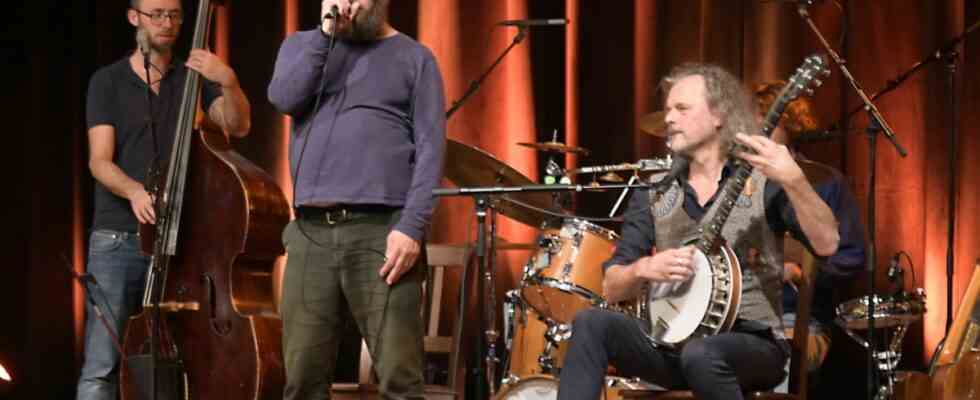Whether the concert-goers in Oberhaching had just been to the shoemaker’s, had their boots freshly polished or were wearing Jesus’ slippers – they all stood up when Sebastian Horn asked them to dance with the devil. Well, actually, the singer of three quarter blood a kind of ski gymnastics, but the rhythmic incentives were a little different. “When you dance with Deife, then you need good Schua”, sang Horn, with his abysmal voice something like an acoustic prince of darkness. And the Bavarian Balkan ska sound really carried the well-shod audience into the sold-out Bürgersaal at Forstner’s. “Deifedanz” is, of course, a diabolically good encore, and it wasn’t the only known number of the band that was played that evening: “Wos leftover”, the title song of “Oktoberfest 1900”, the band played in the first part and at the end she added the relentlessly casual “Big-a-Dog, Big-a-Bite” from “Who dies earlier is dead longer” as a second encore.
What was particularly exciting was what sounded in between. Dreiviertelblut’s performance in Oberhaching was a CD release concert: the band’s fourth studio album, entitled “Plié”, will not be released until the beginning of December, and how the songs are received live is tested by the seven outstanding musicians, led by Horn and Guitarist and composer Gerd Baumann, currently already in advance on selected Bavarian stages.
Well, if you like the characteristic sound of the band, in which clarinet, flugelhorn, trumpet, drums, guitar, double bass and e-guitar mix in an idiosyncratic way, you won’t be disappointed. Of course, the lyrics, sung in dialect, also reveal the protagonists’ penchant for the dark-religious-morbid, but there are also sensitive and tender flights of fancy (“Liedeslied”), whereby the poetic finesse sometimes unfolds more through the rhyme than through the content. Crude, black humor and reckoning with human stupidity are also part of it (“Someday”). Next to “Raunnacht” and “Hehna ohne Kopf” “Ast vom Baam” is definitely outstanding, both musically and lyrically. Pathos and punk go hand in hand when Horn sings: “Not the dead, but the living go to hell.” Driving beat, rising to a kind of wall of sound, but also finely rhythmic contrasts – the song pulls you in and has many philosophical-ironic text passages. Conclusion: “And tomorrow the world will look completely different again.”

